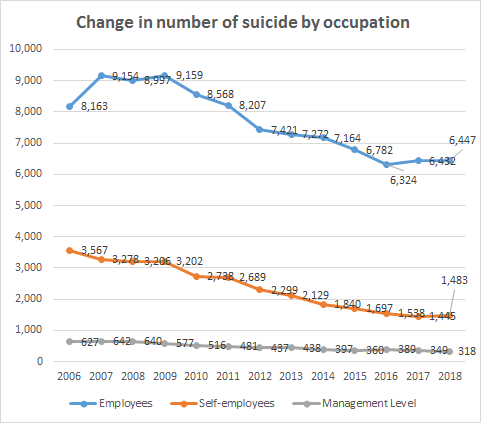![]()
![]()
![]()
The information collected by the  JICOSH
JICOSH  ,
the former international center of JISHA, is available here, though it has not been updated:
,
the former international center of JISHA, is available here, though it has not been updated:
 Statistics of Workers' Health Condition in Japan (2018)
Statistics of Workers' Health Condition in Japan (2018)
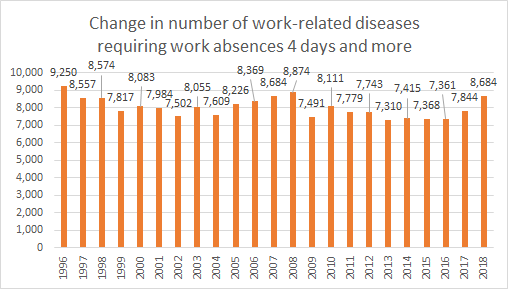
 Survey of work-related diseases by Ministry of Health, Labour and Welfare
Survey of work-related diseases by Ministry of Health, Labour and Welfare (only Japanese)
(only Japanese)
 occupational_diseases_(1960-2018).xls
occupational_diseases_(1960-2018).xls

 2018_occupational_diseases.xls
2018_occupational_diseases.xls
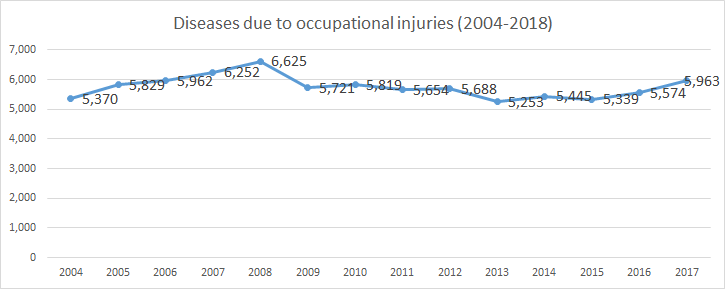
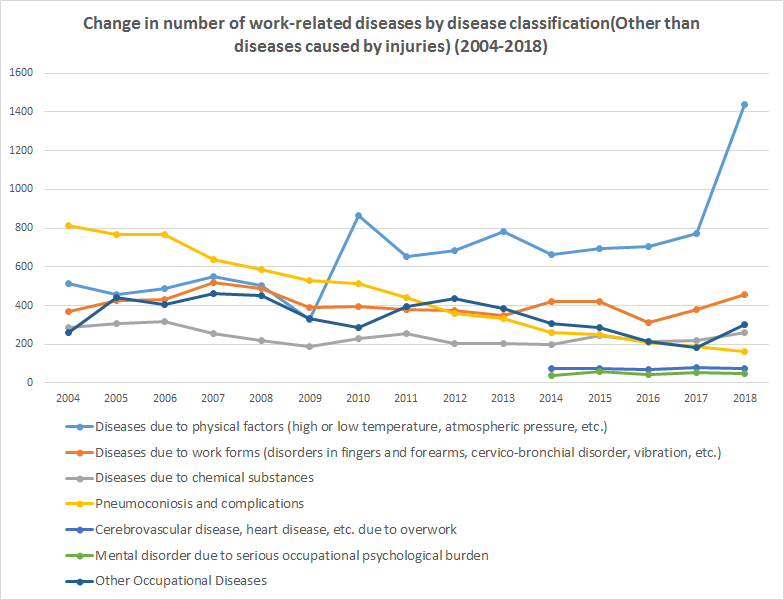
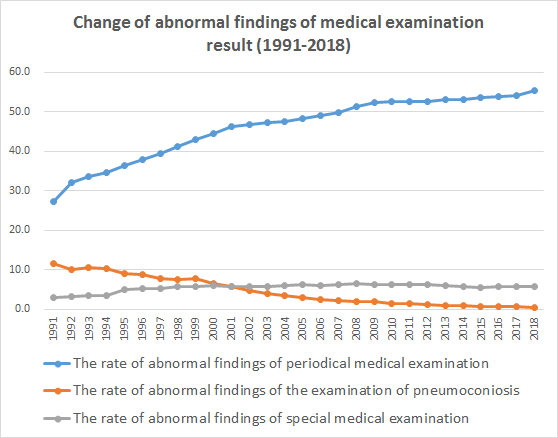
 Survey of results of periodical medical examination, pneumoconiosis examination and special medical examination by MHLW
Survey of results of periodical medical examination, pneumoconiosis examination and special medical examination by MHLW (only Japanese)
(only Japanese)
 2018_medical_examination.xls
2018_medical_examination.xls
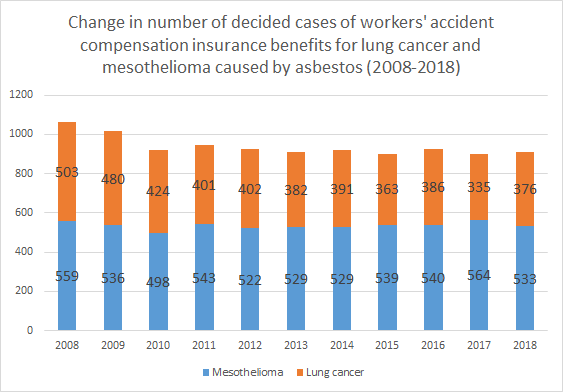
 Survey by the Office of Occupational Diseases Compensation, MHLW
Survey by the Office of Occupational Diseases Compensation, MHLW (only Japanese)
(only Japanese)
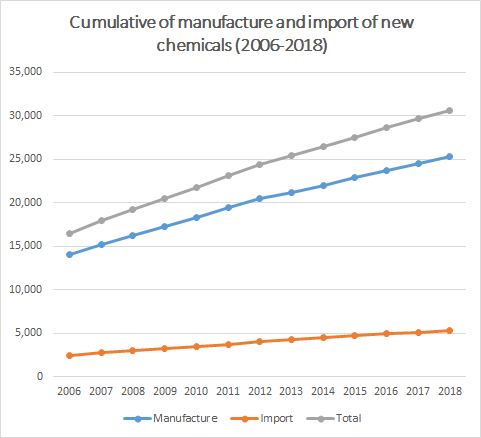
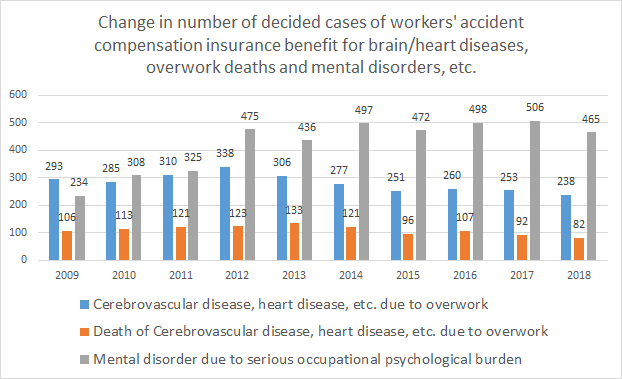
 Survey by the Office of the Occupational Diseases Compensation, MHLW
Survey by the Office of the Occupational Diseases Compensation, MHLW (only Japanese)
(only Japanese)
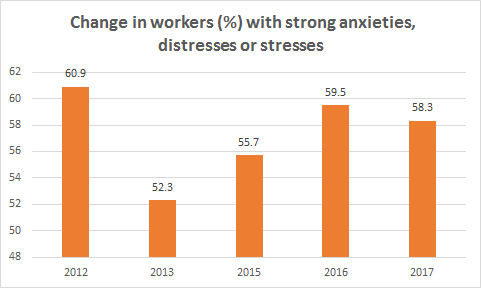
 Survey of workers' health condition by MHLW
Survey of workers' health condition by MHLW (only Japanese)
(only Japanese)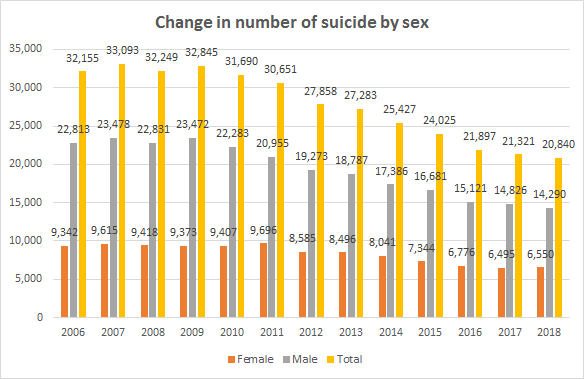
 National Police Agency
National Police Agency (only Japanese)
(only Japanese)
